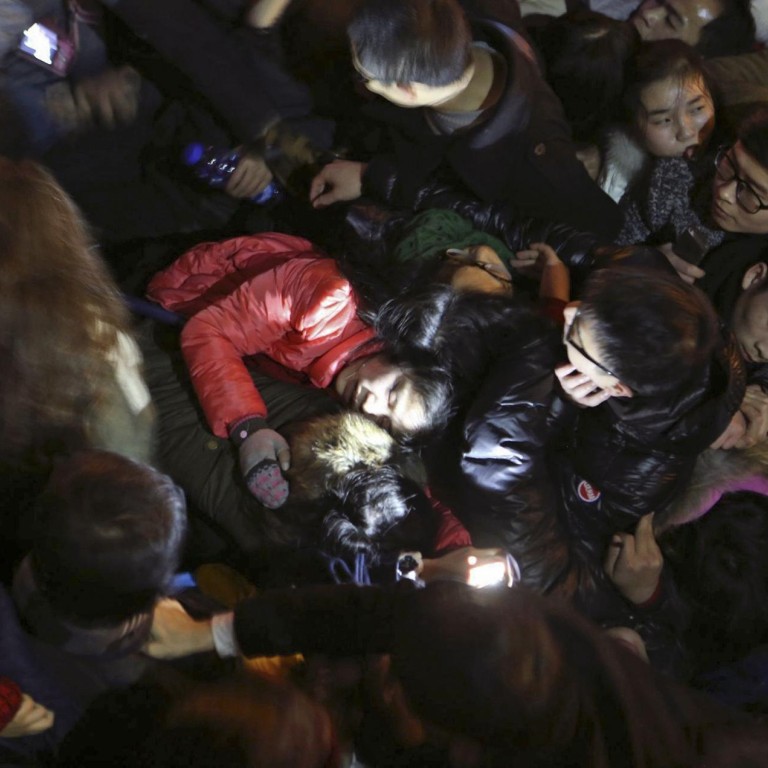
Who will be held to account for disaster on the Bund?
Many of the relatives of the 36 killed on New Year's Eve believe the lack of security and crowd control on the riverfront led to the fatal crush
As the investigation into Shanghai's deadly New Year's Eve stampede continues, some officials in the city fear for their jobs, according to government sources. Speculation is flying over which cadres might be held accountable for the disaster.
Thirty-six people died and 49 others were injured when people crowded onto the riverfront at the Bund to celebrate the new year, with many coming in the hope of watching a spectacular light show.
So far state authorities have been absent from the investigation and left the work to the city government.
This has triggered questions in the domestic media about why an accident that made headlines around the world is not being investigated by the State Council.
Meanwhile, the families of the dead are growing increasingly frustrated at the slow progress in determining the cause of the disaster and who should be held responsible.
Li Qi, a cousin of 25-year-old Li Xiang who died in the stampede, said government officials had told them to wait and declined to provide a timetable of when the investigation would be concluded. Li said there had been no discussions with officials about compensation.
"We relatives are from Fujian and staying in Shanghai and waiting for the investigation result is painful," Li said. "We think each day lasts as long as a year."
They want the investigation to wrap up soon so they can collect Xiang's body, hold a funeral and return to their hometown.
Although the city government is paying for the food and lodging of the victims' families, economic costs are mounting on other fronts. One family waiting in Shanghai said 16 relatives of one victim had travelled from rural Hubei province . Many have asked for leave of absence from their employers, costing them salary.
One relative, who asked not to be named, said the authorities had sent several low-level officials to monitor them around the clock. "For most of the day, these officials are chatting with each other and doing nothing else. They look quite relaxed, but we are anxious," he said.
In the minds of many relatives, the disaster was the result of reducing security along the riverfront this year.
For the New Year's Eve festivities at the Bund a year ago, more than 6,000 police officers were deployed and the security was administered by the municipal Public Security Bureau. This year 1,200 officers were on duty and the Huangpu district police authority was put in charge. A traffic ban around the Bund, which had been imposed during previous years, was not enforced.
The decision to lower the security level came after the cancellation of the night's main light show. Municipal authorities expected fewer people to turn up.
But another light show, held hundreds of metres from the Bund, did go ahead, although it was only open to people with tickets.
The organiser was the district government and the Shanghai Media Group, both of whom had staged the previous big light show. Many mistakenly turned up on the night thinking the regular event would go ahead as normal.
Some indication of the level of official who might receive official blame for the stampede might be gleaned from another disaster in the city four years ago. A huge fire at a high-rise residential block killed 58 people in November 2010 after lax safety standards led to poorly qualified welders igniting scaffolding around the building.
The director of the Jingan district government and two of his deputies were sacked.
One of Shanghai's vice-mayors overseeing the construction industry received only a reprimand.

